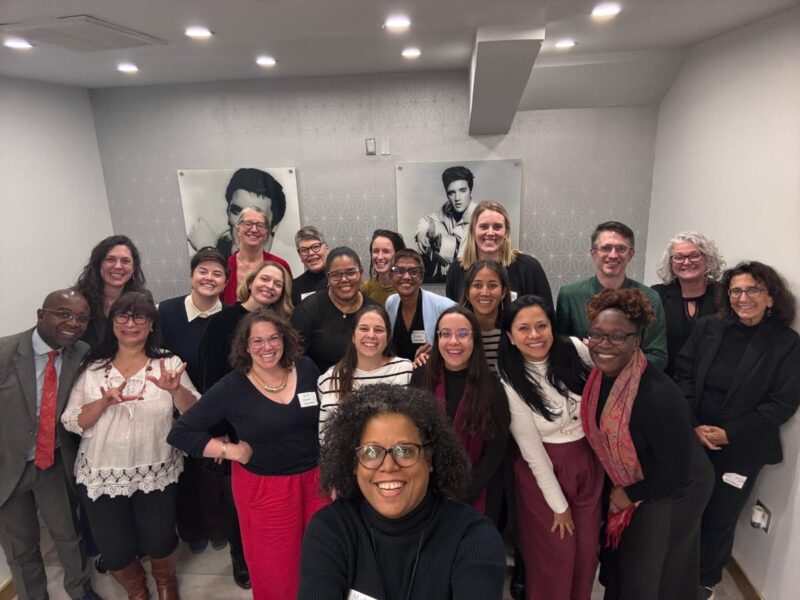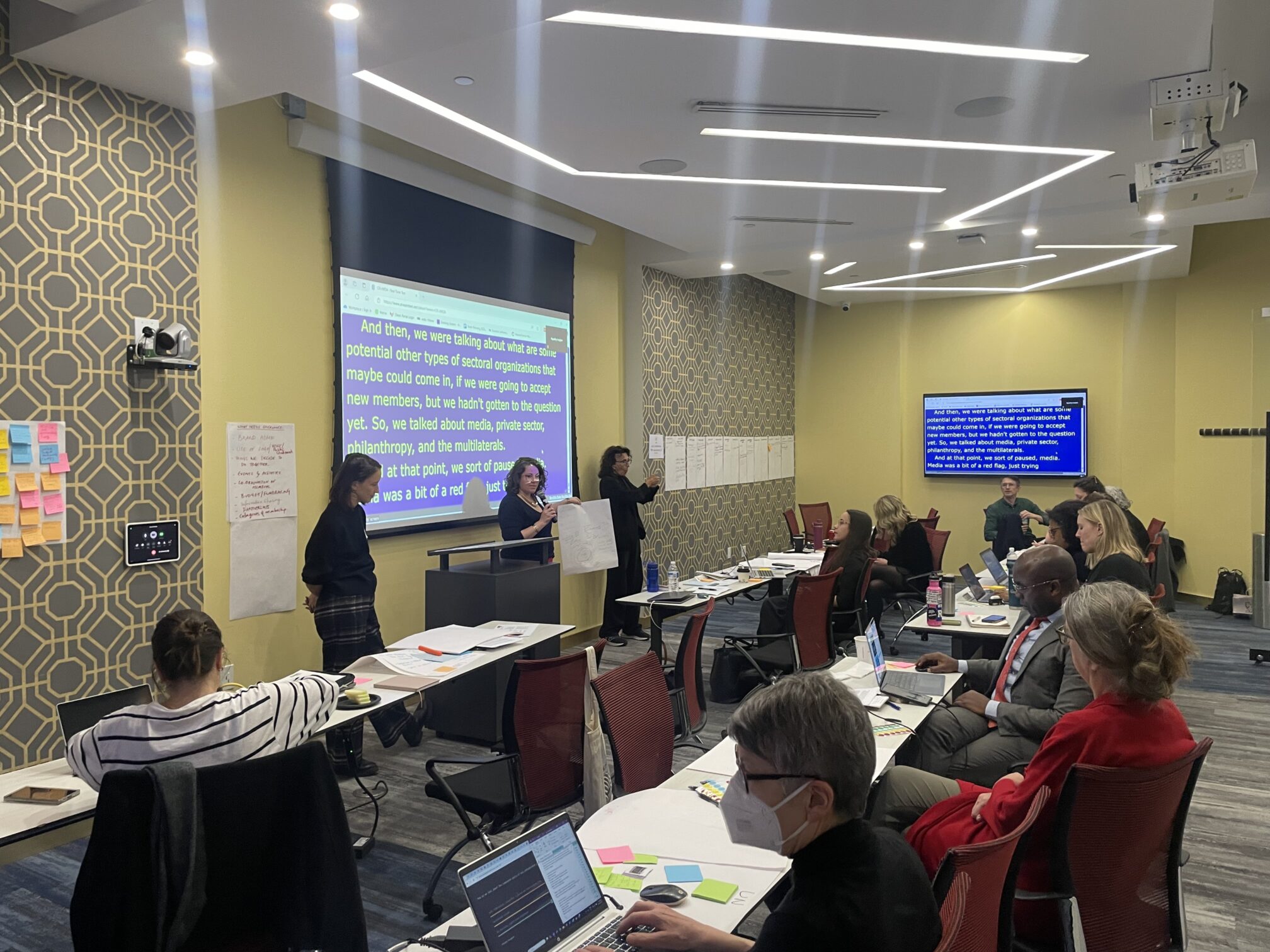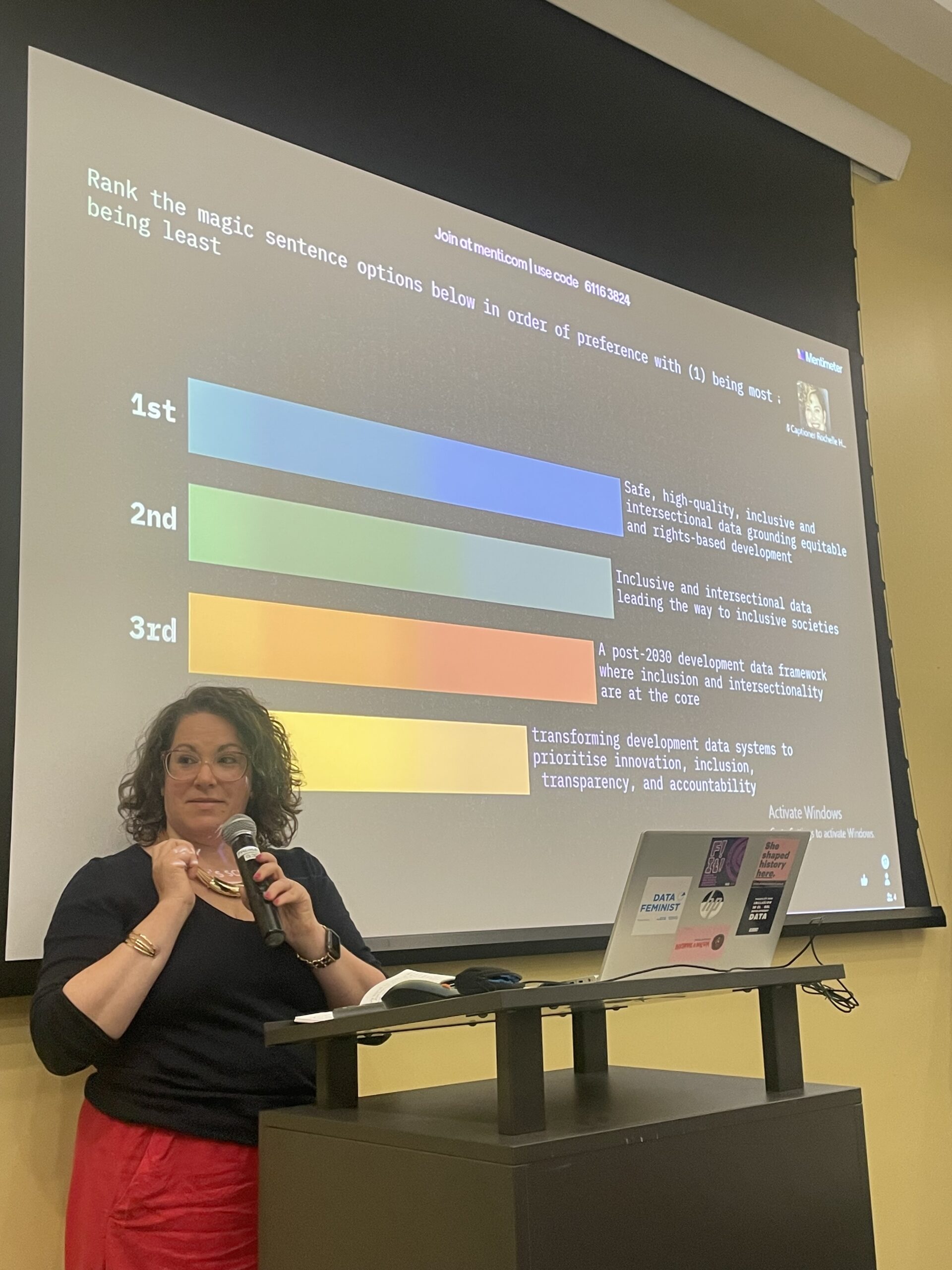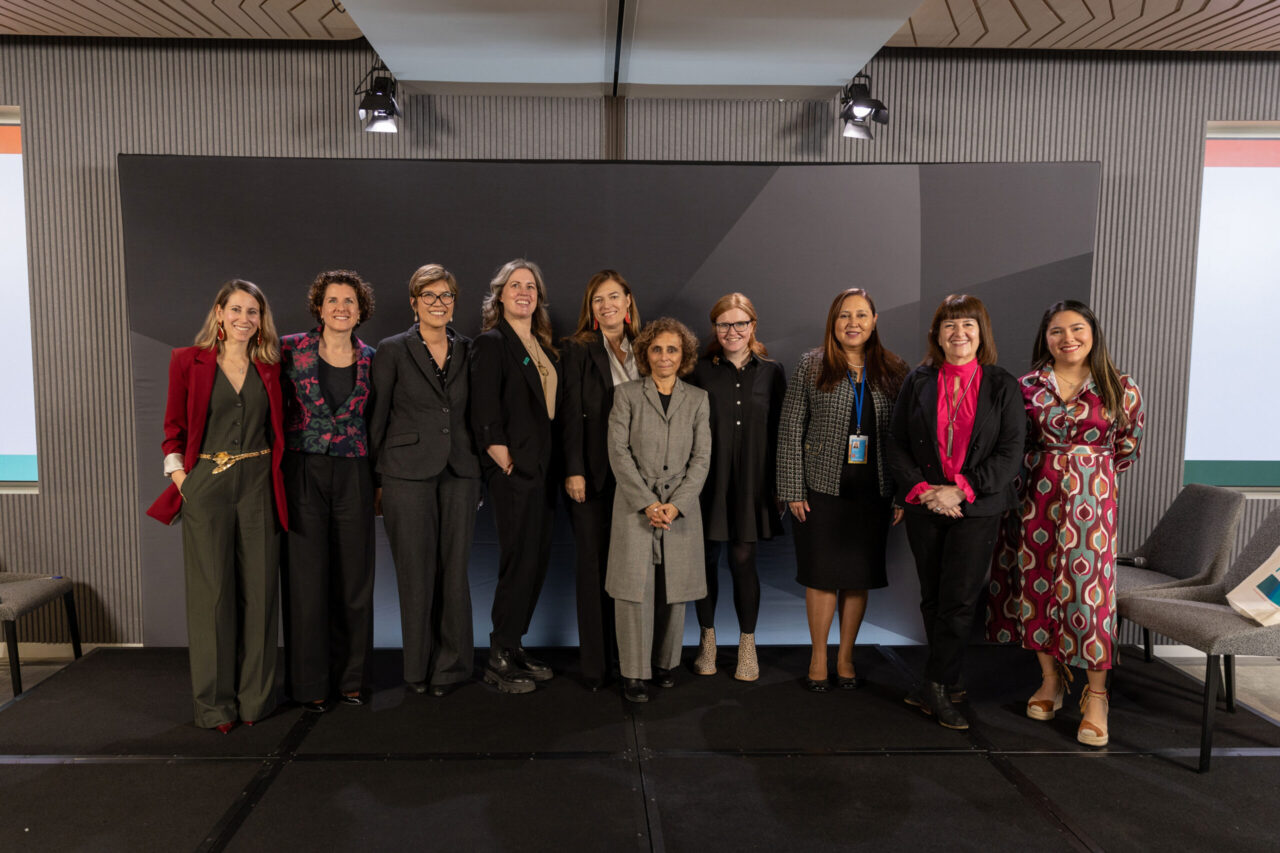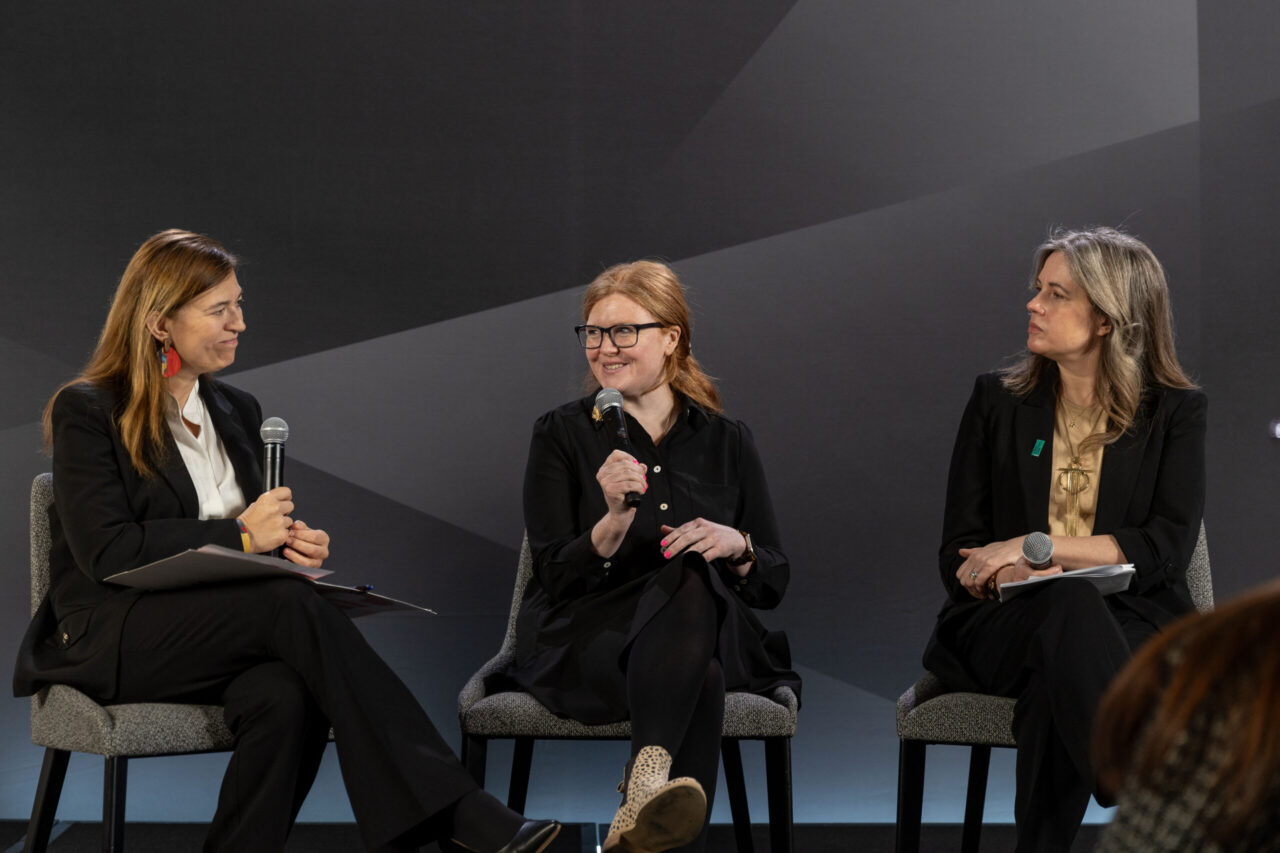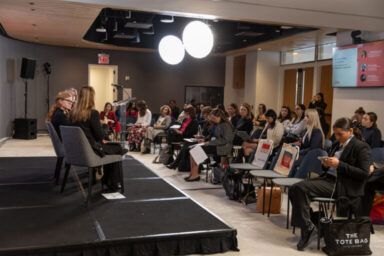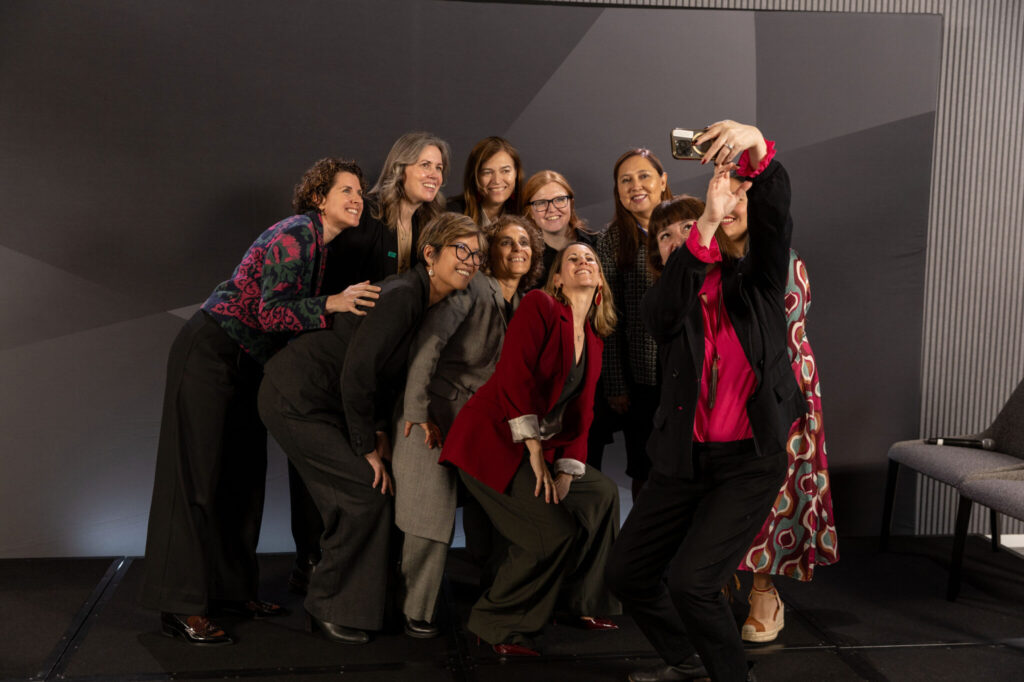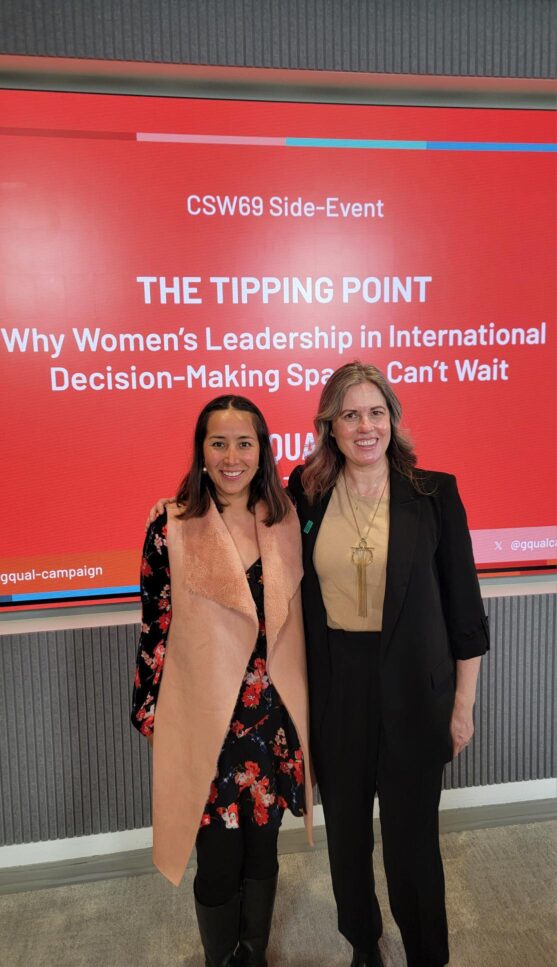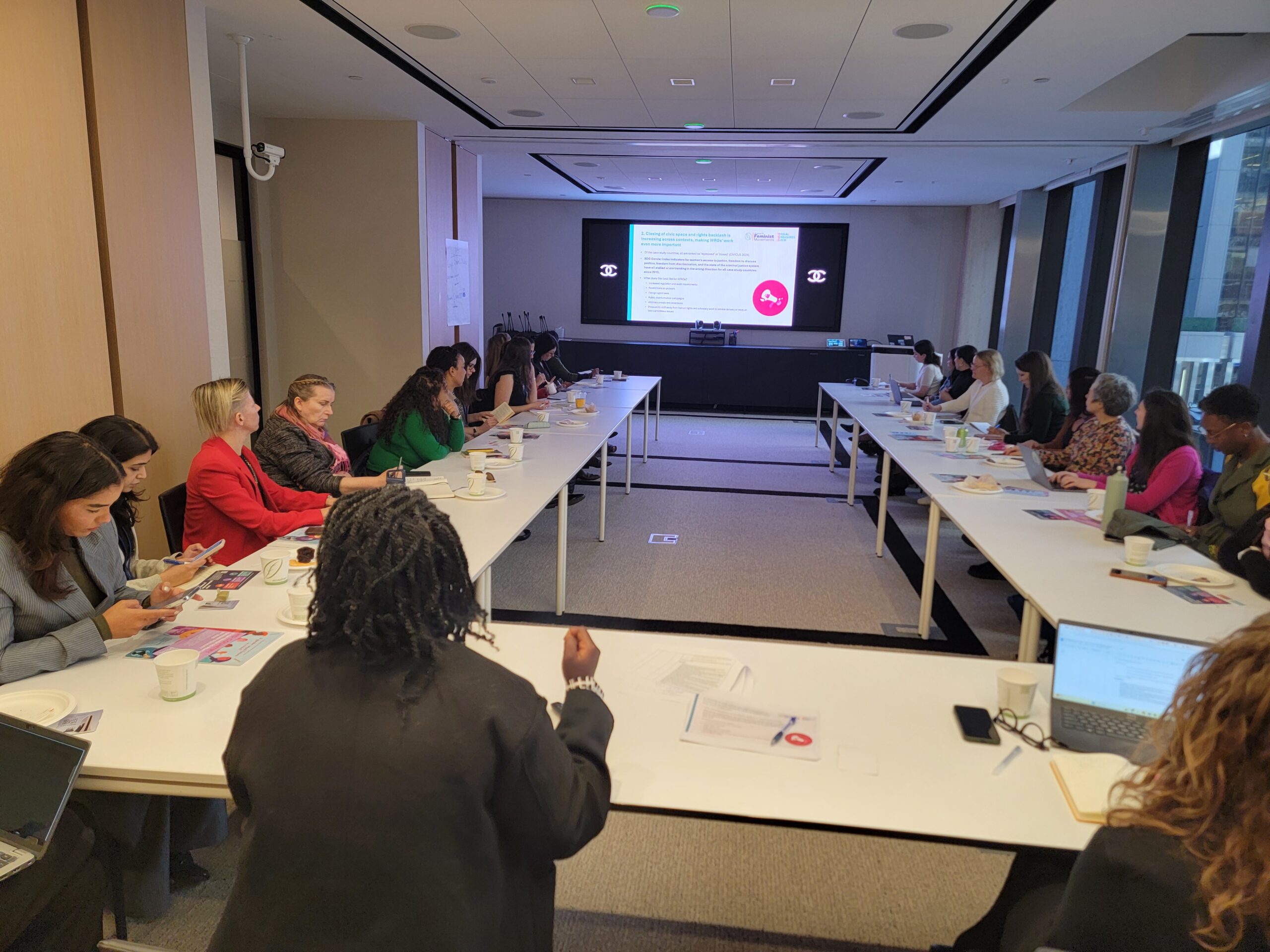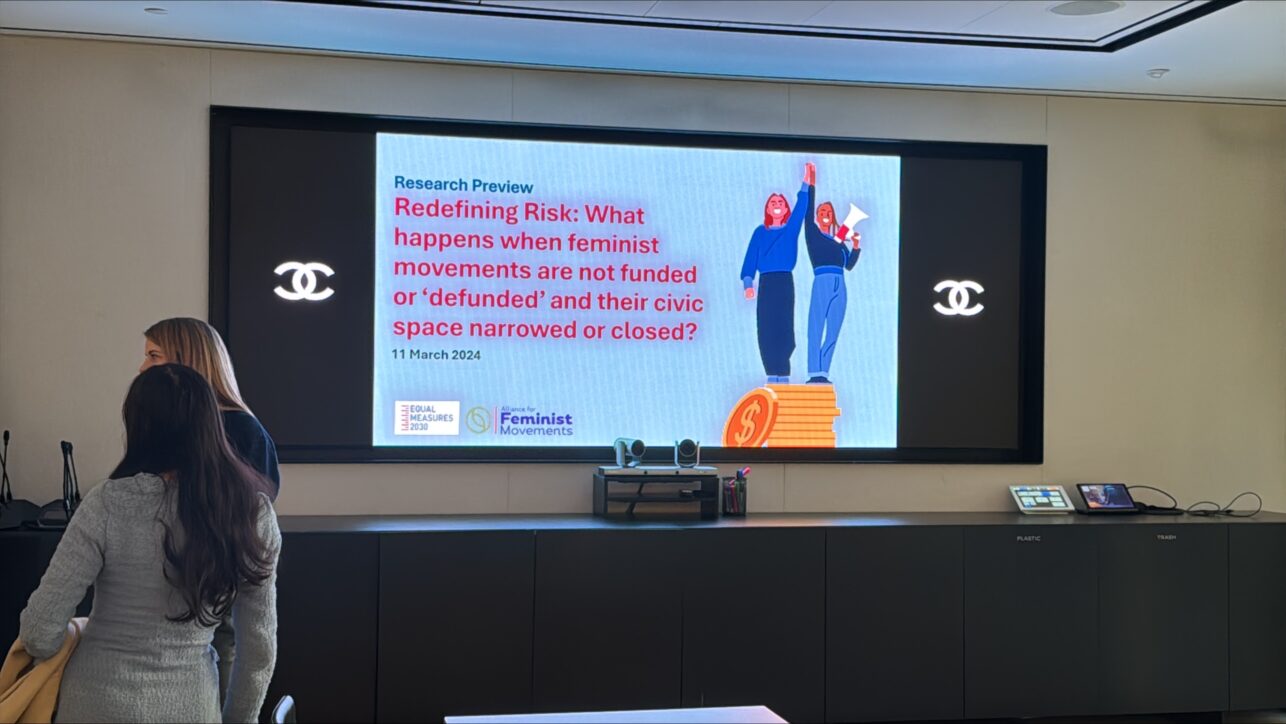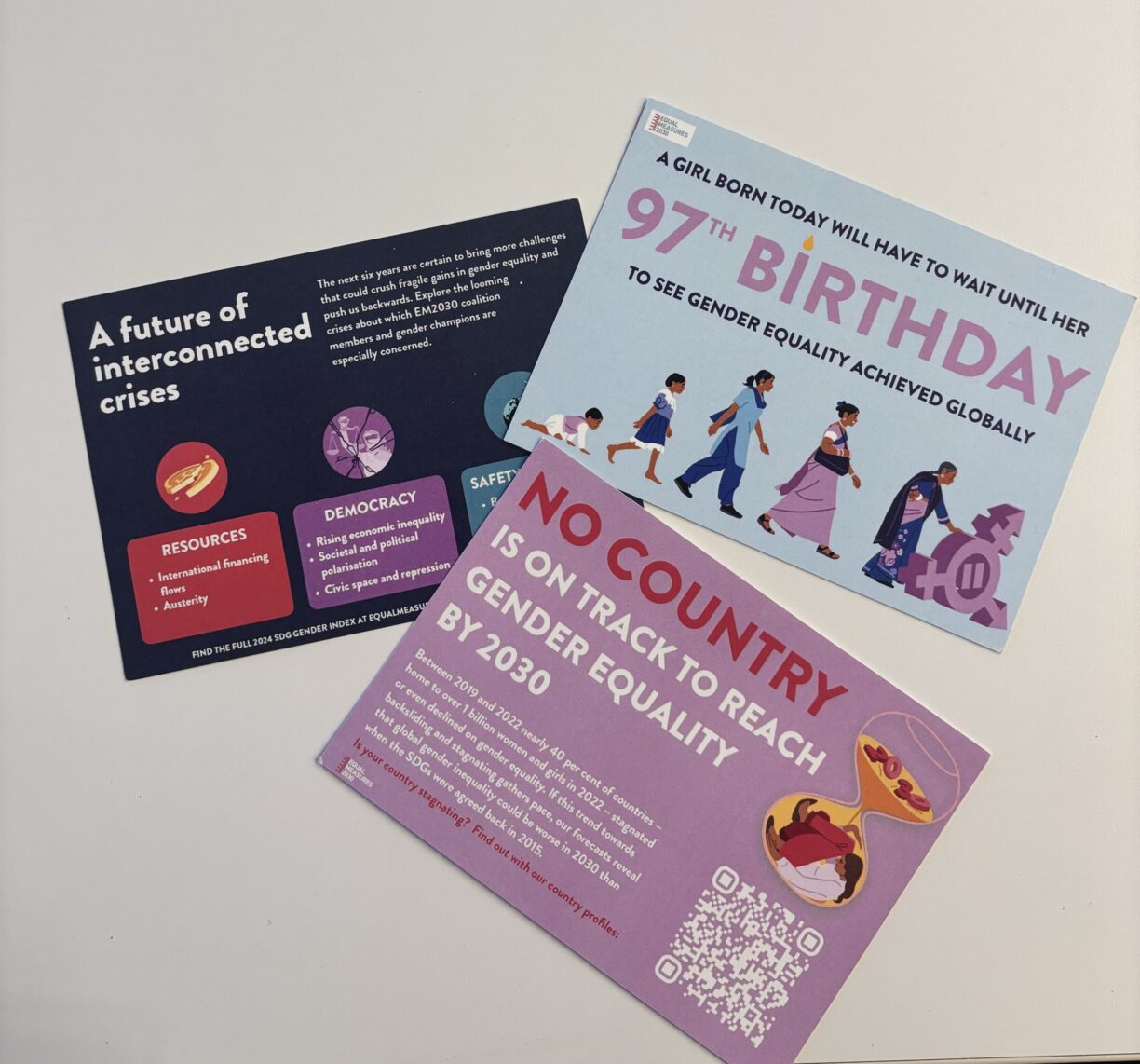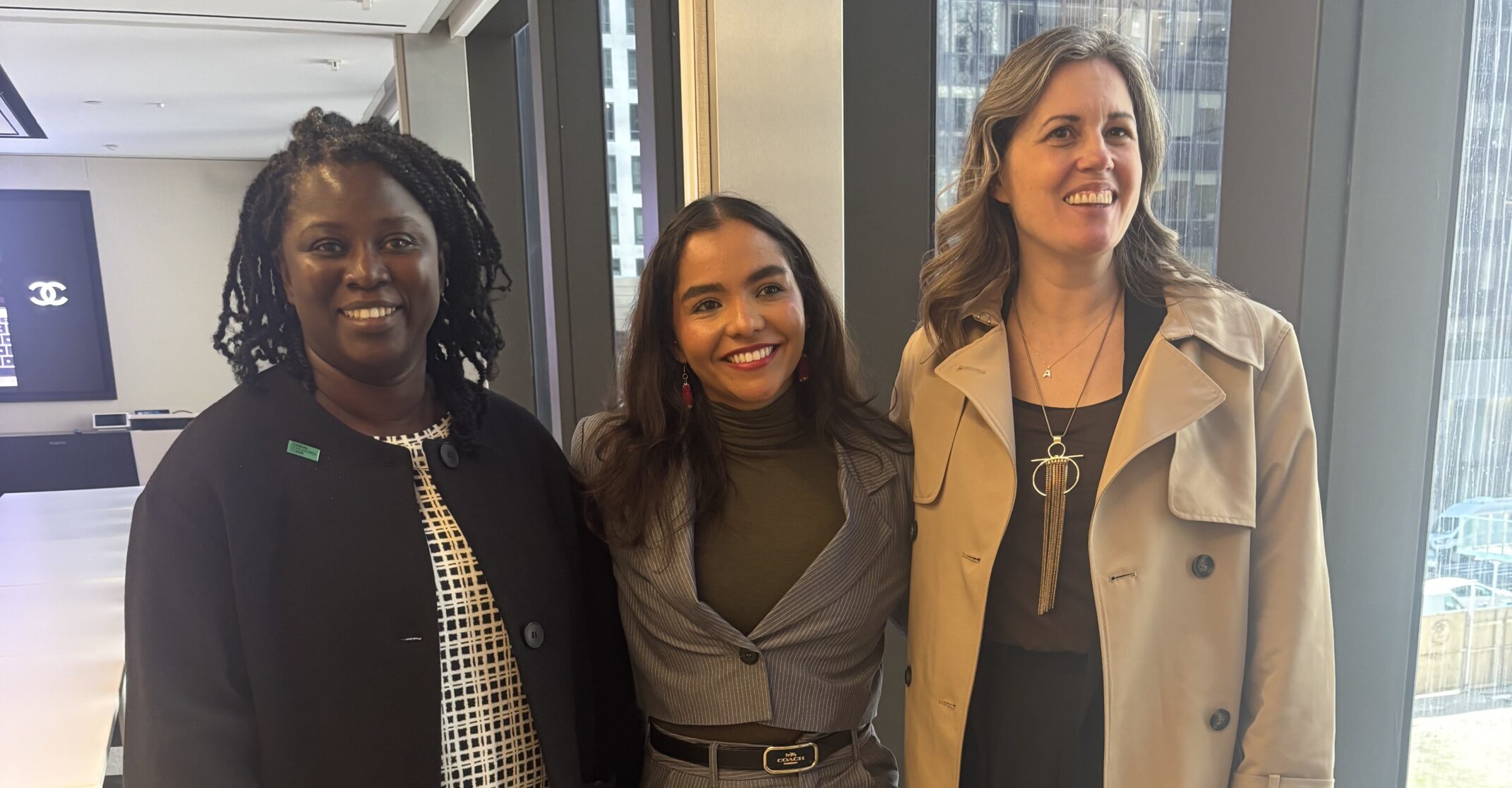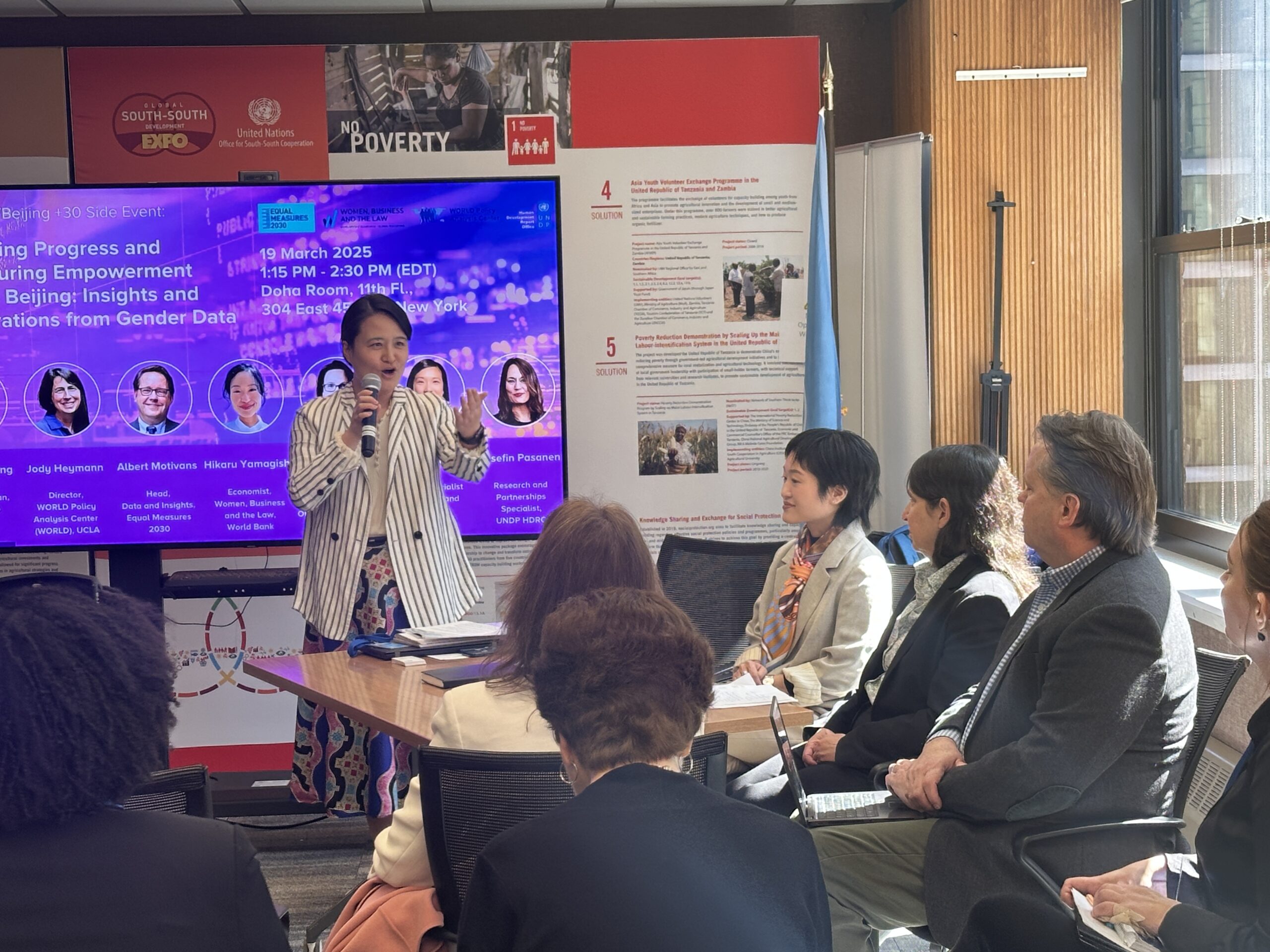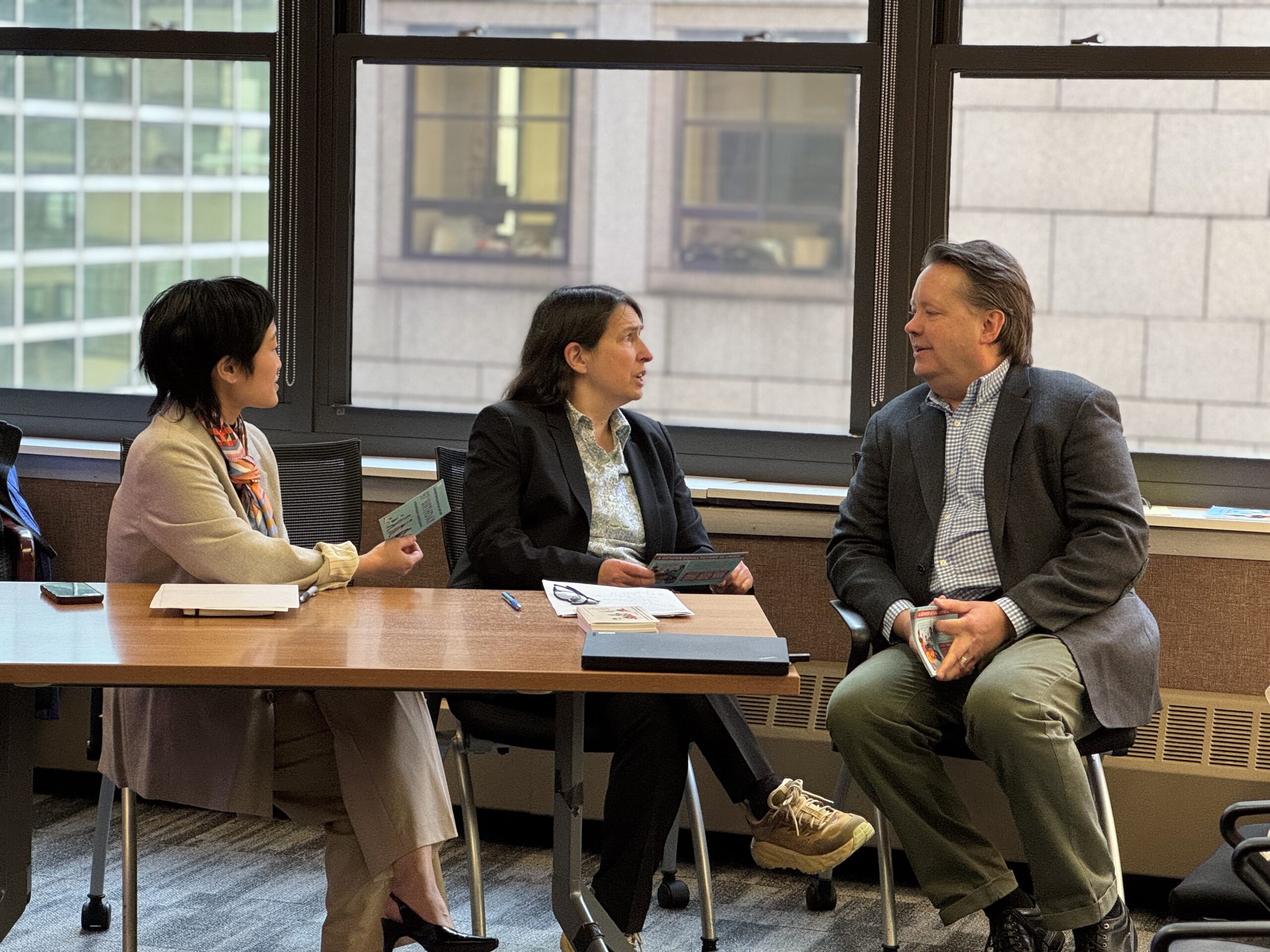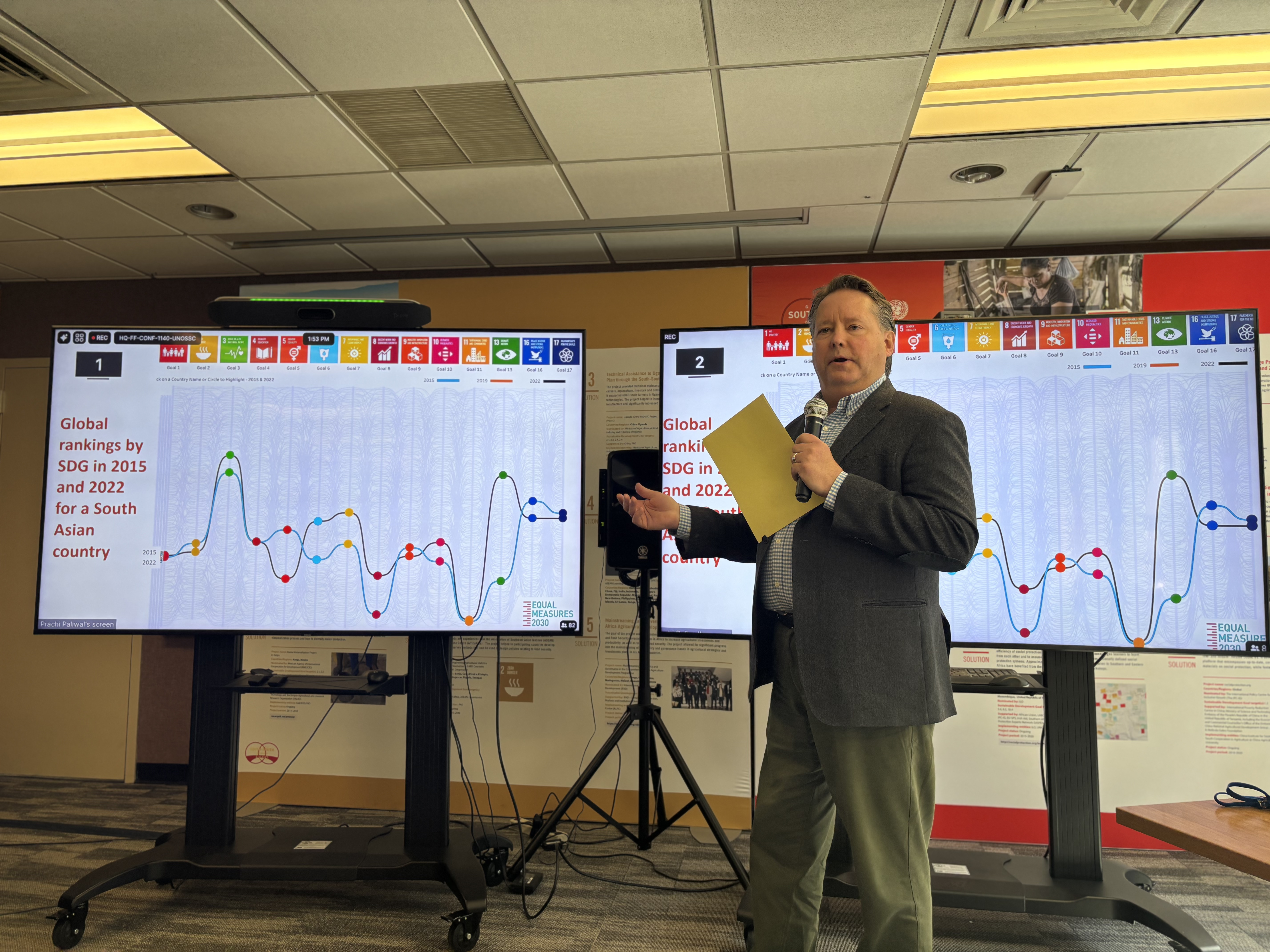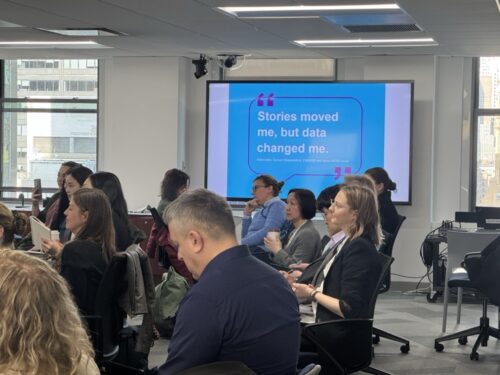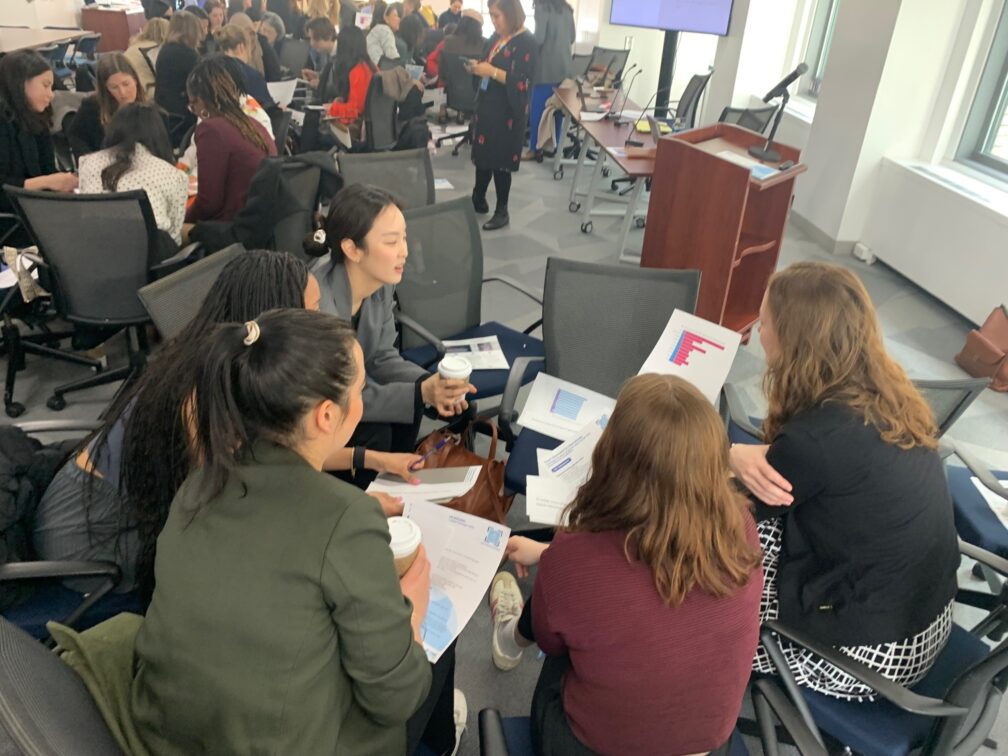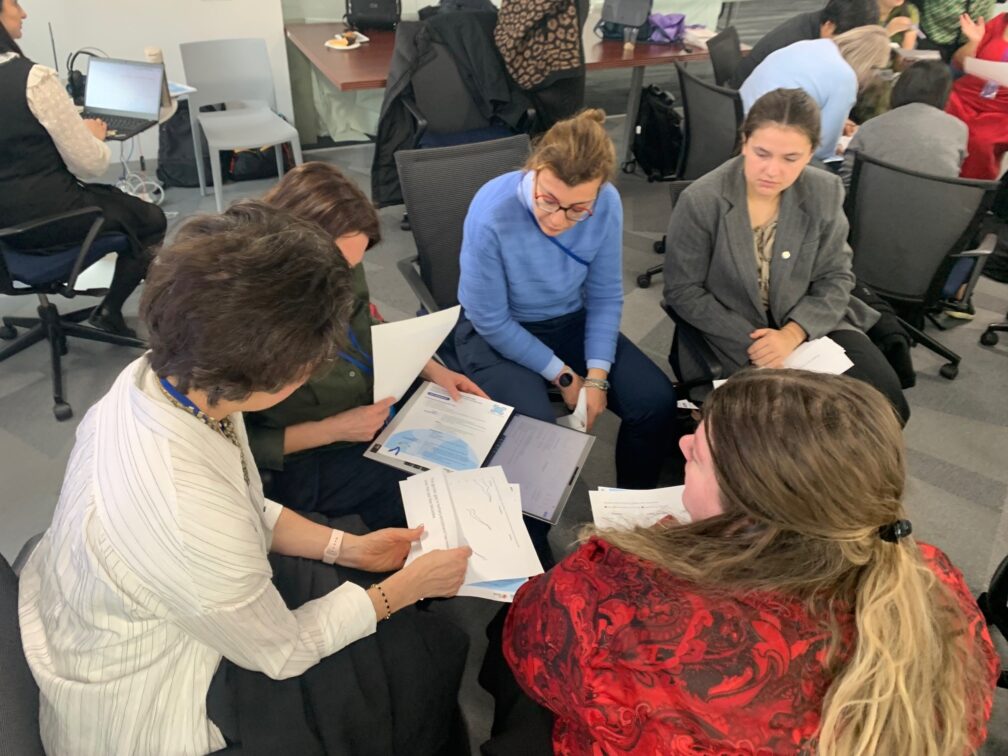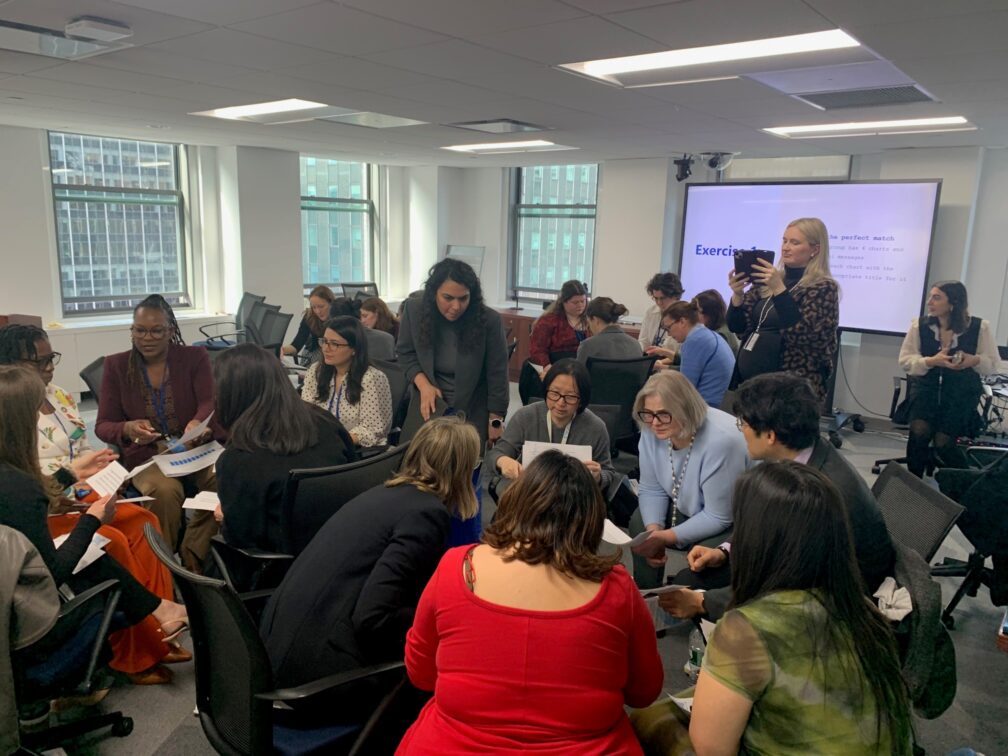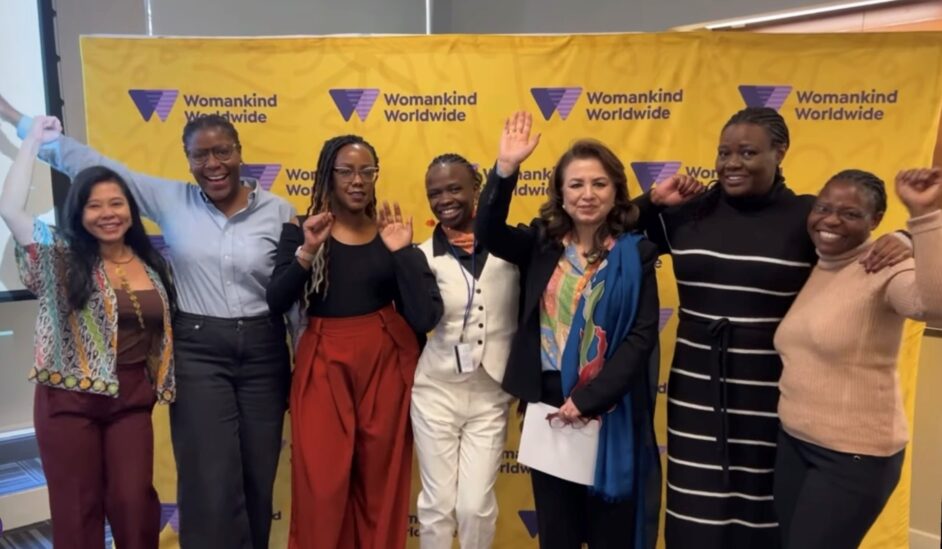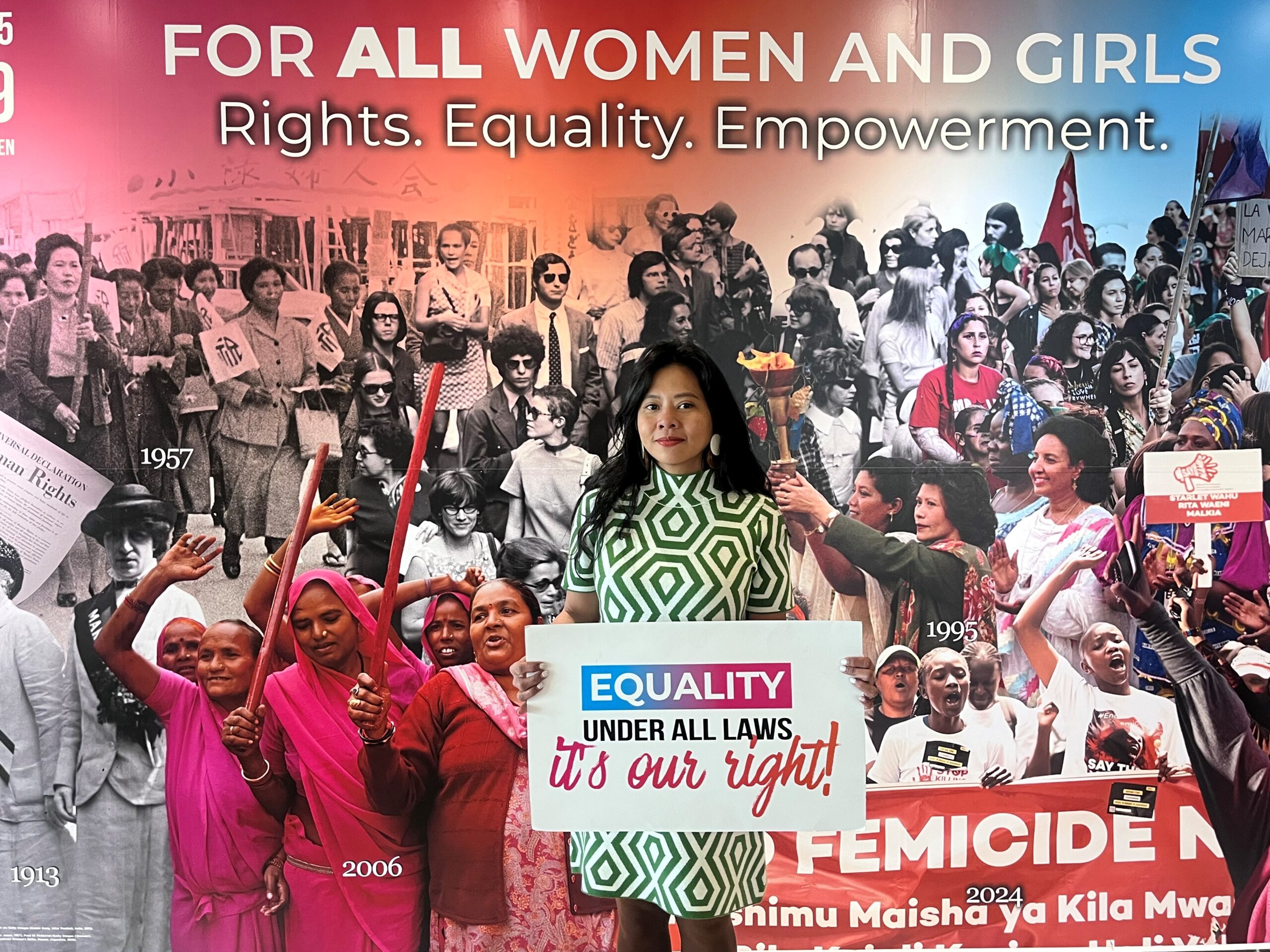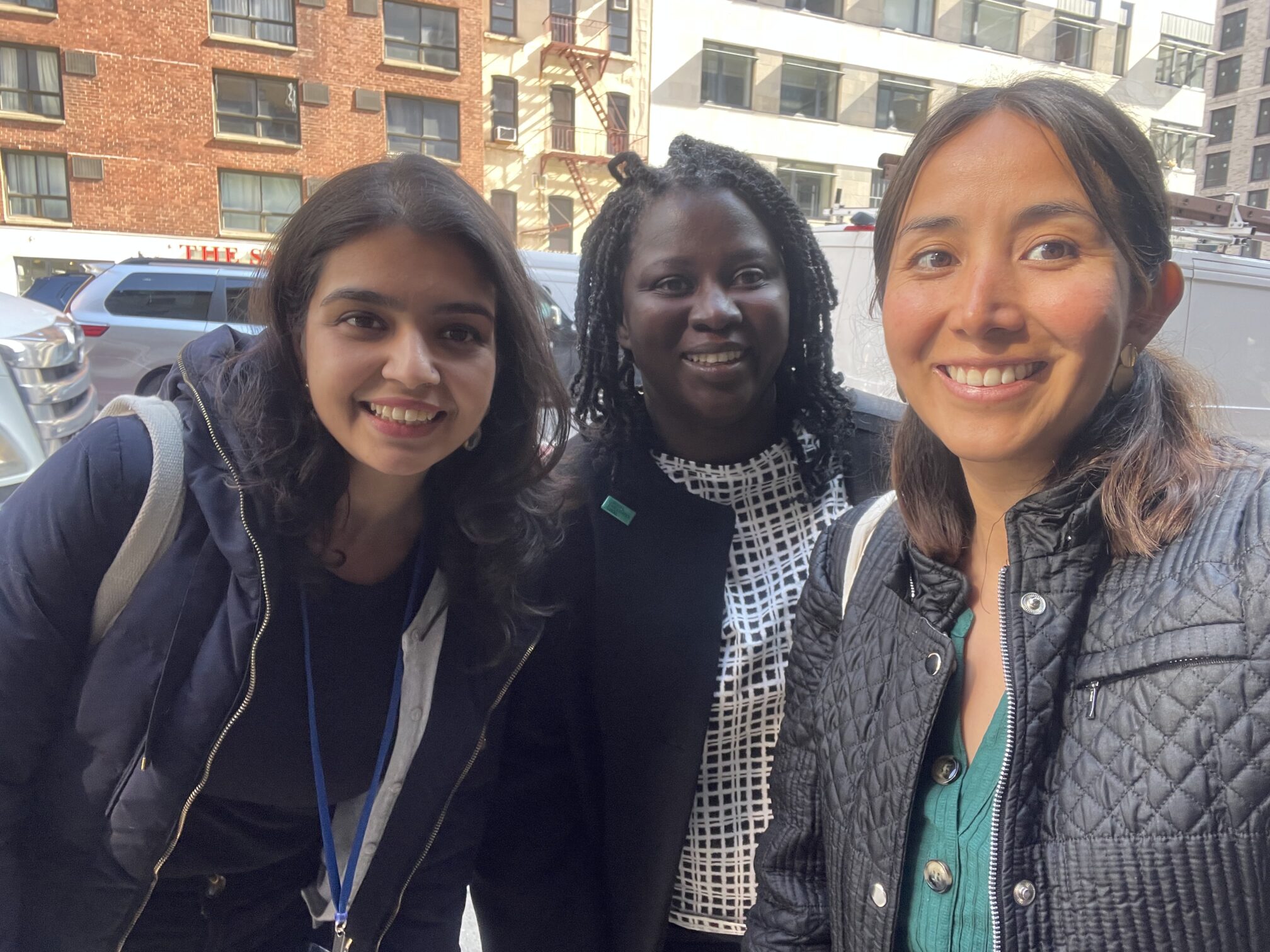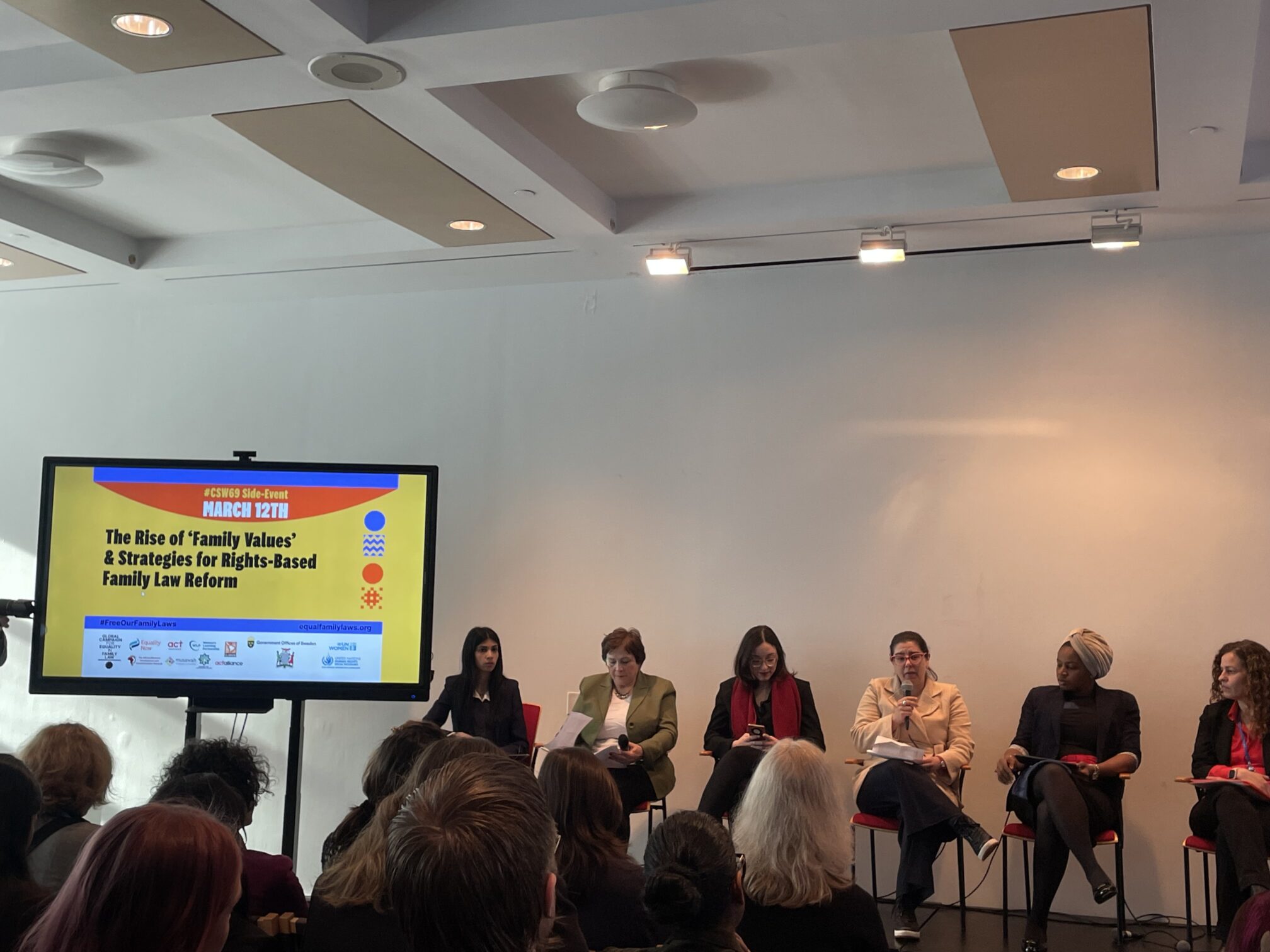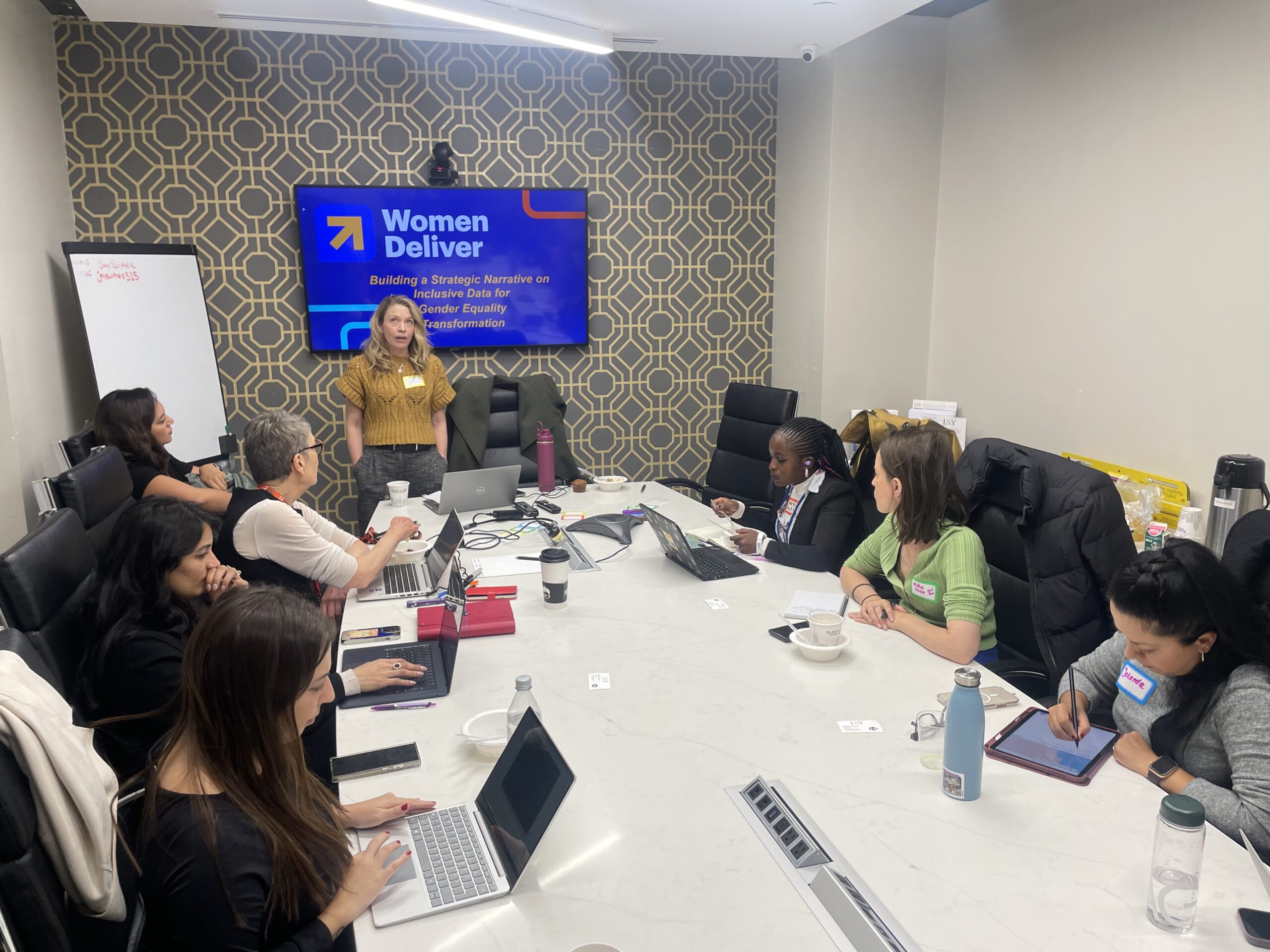Holding the Line for Gender Equality: Equal Measures 2030 at CSW69
In the face of growing global backlash against gender equality, the Commission on the Status of Women (CSW) remains a vital space for feminist movements to connect, strategize, and reaffirm our collective commitment to progress. This year’s CSW69 took place at a particularly critical moment as we marked 30 years since the Beijing Declaration—a time to reflect on achievements while acknowledging the concerning pushback on hard-won gains for women and girls.
Equal Measures 2030 was present throughout CSW69, both as a secretariat and through our coalition members, with a clear mission: to move the needle on gender equality by highlighting the transformative power of gender data. We believe that when data is placed in the hands of advocates, it becomes a powerful tool for driving accountability and creating meaningful change.
And it was a joy to start off our CSW surrounded by people who echo this belief. We met up for a pre-CSW workshop with the iCount coalition which aims to drive data innovations and increase visibility of marginalized groups in global development data. This workshop was instrumental in establishing shared principles, goals, and priority activities for the coalition’s next 18 months. We later built on these discussions at iCount’s parallel event, where we explored the future of inclusive data and how individual-level measurement can drive more equitable outcomes. At Equal Measures 2030, we strongly believe in iCount’s vision that data are more than just numbers but powerful tools for social transformation. The coalition is working to ensure an ambitious post-2030 global development data framework that measures what truly matters for inclusive realization of the right to development for all.

The power of women’s leadership in international decision-making spaces
Kicking off CSW69, we joined the Gqual Campaign at their compelling event ‘The Tipping Point: Why Women’s Leadership in International Decision-Making Spaces Can’t Wait’ to share the power of women’s leadership in international decision-making spaces. The discussion highlighted an urgent reality: thirty years after the Beijing Declaration, women’s equal representation in global governance remains critically important yet persistently challenged. Our Executive Director Alison Holder brought data to the forefront of the conversation, highlighting how “data can make an issue visible, galvanize pressure, and strengthen advocates’ demands.” The rich discussions emphasized that institutional change happens when legal frameworks, evidence-based advocacy, and diverse coalitions align. The panel revealed stark statistics—including that 21 out of 54 international organizations have never been led by a woman—while celebrating progress, such as the narrowing gender gap in international justice bodies.

An exclusive launch of upcoming research
We were also excited to share our upcoming research “Redefining Risk: What happens when feminist movements are de-funded and their civic space narrowed or closed,” which we’ll be launching at the Financing for Feminist Futures event later this year. This research examines the concerning trend of defunding women’s rights organizations and the simultaneous shrinking of civic space—a combination that threatens to reverse decades of progress on gender equality.

Moving from numbers to narratives – the power of storytelling with data
Our Head of Data, Albert Motivans, spoke at several events focused on the power of data, including a particularly engaging session on moving from numbers to narratives. Co-hosted by PARIS21, UN Women, The World Bank, and Equal Measures 2030, this hands-on workshop explored ways that advocates and stakeholders could hone their skills in visualizing and presenting data. And importantly on crafting messages that demand attention and help to build a compelling narrative or story.
At Equal Measures 2030, we see the importance of this effort – working with grassroots partners to translate mundane rows of data into compelling advocacy messages by asking critical questions: What’s the story this data tells? Can it tell a story about those voices that are unheard? How do we make this evidence resonate? The session reinforced our core belief that when women and girls can see themselves in the data—and use data and evidence with their stories—policy becomes more inclusive and responsive.
Albert Motivans also spoke at an event that underscored the power of collaboration and acting cross-sectorally when it comes to data, policy and gender outcomes. It was hosted by the UNDP HDRO, and included Equal Measures 2030, the World Bank’s Women Business and the Law and the World Policy Center at UCLA. It brought together the UN, academics and civil society organisations to show that by leveraging gender data and tools, it’s possible to tell a richer story about the persistence of gender inequalities and possible ways forward building on different sources of data. The session highlighted complementarities between information on policy change, data on social norms and SDG-related gender outcomes and sent a strong message to funders to promote multi-sectoral work on gender and measurement, and that building a culture of sharing and learning of data and its uses will have further multiplier effects.

The power of feminist movements since the Beijing Declaration
On March 19th, our Deputy Executive Director Julisa Tambunan participated in an insightful event with WOMANKIND, POLYCOM GIRLS, and FEMNET as they reflected on feminist movements and the Beijing vision 30 years later. During the session, which included the launch of a new report on feminist movements, Julisa emphasized the interconnectedness of emerging global issues and gender equality. “When we talk about emerging global issues—climate change, global health, technological shifts, and geopolitical conflict—let’s first be clear: they don’t exist in silos. They’re deeply interconnected, and they all intersect with gender,” she noted. Our SDG Gender Index comprehensively analyzes these crises, revealing the complex ways they exacerbate gender inequalities, and how they culminate in a concerning reality: no country is currently on track to achieve gender equality by 2030, and these interconnected crises only further threaten the fragile progress made so far.

Strengthening gender-responsive policy initiatives with data
Drawing an end to CSW69, Julisa also joined a dynamic conversation with International Budget Partnership, CIVICUS, Himpunan Wanita Disabilitas Indonesia, and the Fédération Sénégalaise des Habitants to explore feminist accountability in governance and public finance. She shared powerful insights on how data-driven advocacy can strengthen gender-responsive policy initiatives, emphasizing that “data is power—especially when it’s in the hands of feminist advocates.” Drawing from Equal Measures 2030’s recent “Walking the Talk” study, Julisa discussed strategies to bridge the gap between grassroots evidence and policy decision-making, including sustaining grassroots and feminist organizing, strengthening capacity to turn data into advocacy, elevating community-generated data, reforming donor practices that undermine engagement and protecting civic space and creating access to power. To truly bridge the gap between grassroots realities and global or national policy, we need to shift power. That means funding grassroots organisations sustainably, valuing all forms of data, and making sure those who live the realities have a seat at every decision-making table. “When grassroots advocates are trusted as knowledge-holders, and their evidence is taken seriously, we move closer to policies that reflect the people they’re meant to serve—and we safeguard the progress we’ve fought so hard to win.”
Standing together and holding the line against pushback
These conversations were vitally important in strategizing and collaborating at a time when feminist movements must come together to hold the line against pushback. While Beijing+30 did end with a declaration being achieved, negotiations included significant resistance to language around gender equality and the accepted outcome narrowed framing from “women and girls in all their diversity,” to “all women and girls.” Similarly, references to sexual and reproductive health and rights have been completely removed. The presence of anti-rights groups was palpable, and the pushback is real and in the room with us.
Yet despite these challenges, we left CSW69 energized by the resilience and determination of feminist movements worldwide. The packed rooms, engaged discussions, and powerful collaborations reminded us that we are not alone in this struggle. It was a joy to be able to connect and engage with our coalition members – Women Deliver, ARROW, Data2X, CLADEM, FEMNET, Ruta Pacifica, who also remind us of this. Despite working in different spaces, regions and issues, our shared commitment to advancing progress through data-driven advocacy remains a powerful connection, and our collective stance is critical in the face of growing resistance.



